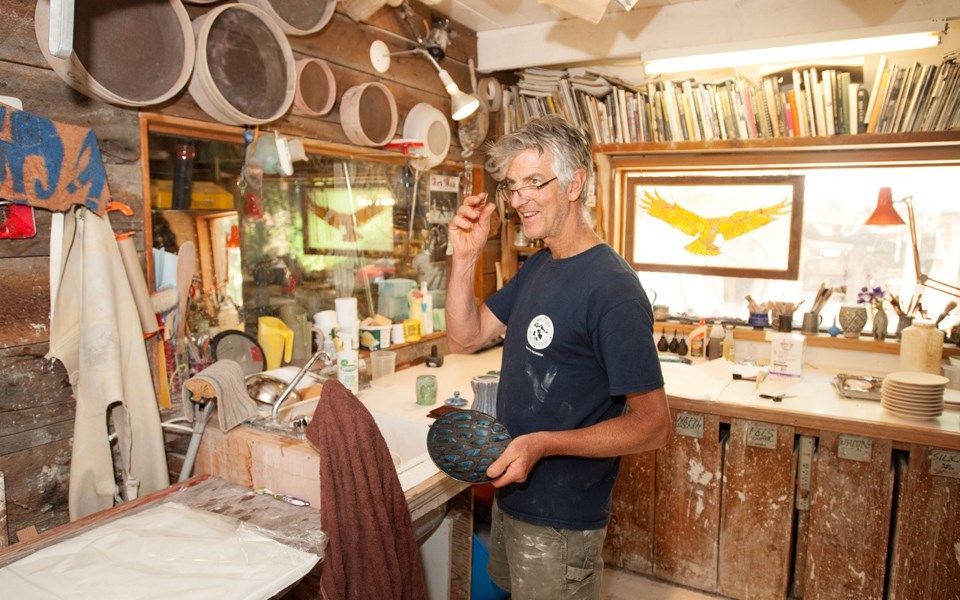The Resort Municipality of Whistler's (RMOW) experiment with Temporary Use Permits (TUP) for home-based artist studios appears to be over.
At its Oct. 8 meeting, council gave first and second readings to bylaws that will remove the TUP requirement for home-based studios, and allow them to operate in residential zones under the zoning bylaw, including the right to sell their products from home.
A public hearing will follow.
If the bylaws are adopted, home-based studios will only require a business licence and sign permit to operate.
The bylaw also states that products or materials sold from home-based studios are "restricted to artworks and crafts produced on the premises," said acting senior planner Courtney Beaubien, in a presentation to council.
The TUP experiment drew pointed criticism from local artists when it was introduced in late 2015, who argued they should not be charged the $750 permit fee on top of their $165 business licences.
After some amendments to the bylaws—including smaller fees to the tune of $200 per year—Arts Whistler eventually stepped in to fund a two-year pilot program paying for the first wave of TUPs.
Just four home-based studios signed on for the pilot.
Among them were Vincent and Cheryl Massey, who have been creating and selling their art—pottery and basketry—in Whistler for more than three decades.
"It's kind of weird and ironic that once the TUP got put into place, there was a drop in people coming by, and in sales," Cheryl said, adding that she couldn't say if that was a coincidence or not.
"I'm pleased to know that they're going to remove the TUP, because I think it really hurt a lot of local artists in a way of going about doing business and selling their work, and it really scared a lot of people off."
While Arts Whistler covered the Masseys' TUP costs, "I felt like [Arts Whistler] money was not to cover permit fees," Cheryl said.
"It just didn't feel right."
The TUP experiment was born out of Whistler's 2013 community cultural plan. A 2015 regulatory review of home-based studios found that while studios were permitted under the zoning bylaw, the sale of art from said studios was not.
"The 2015 analysis concluded that bylaw and permitting changes were required to further support home-based artist studios ... [and] that an initial trial TUP program was desirable to test the bylaw and permitting changes," Beaubien said.
With the TUP pilot program set to expire in November, RMOW staff conducted a review earlier this year, ultimately deciding the TUP requirement should be removed.
"This conclusion is based on the RMOW having received no complaints about these studios, additionally, no issues or negative concerns have been identified with regard to permitting these studios as home occupations," Beaubien said.
Councillor Cathy Jewett voiced support for the amendments after the presentation.
"I know that the local artists are going to be very happy to see this, and Arts Whistler as well, because local artists don't have an easy time," Jewett said.
"'Starving artist' is an expression for a reason, so this is a really good move to support art in our community."




